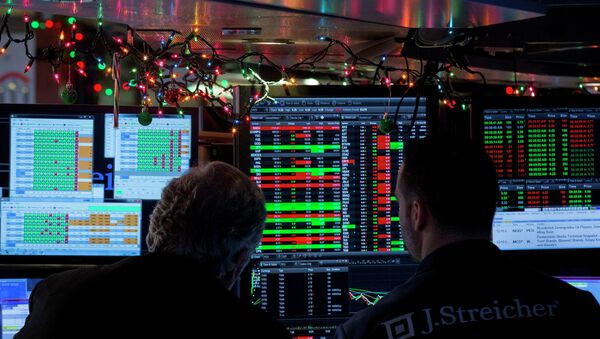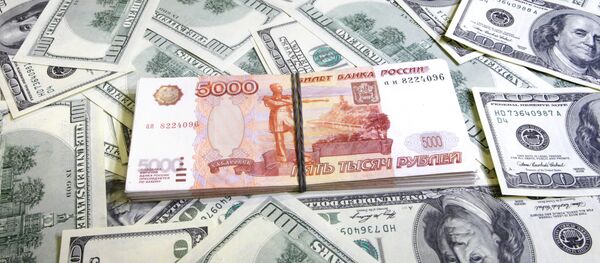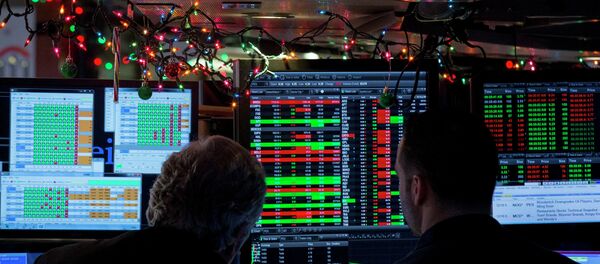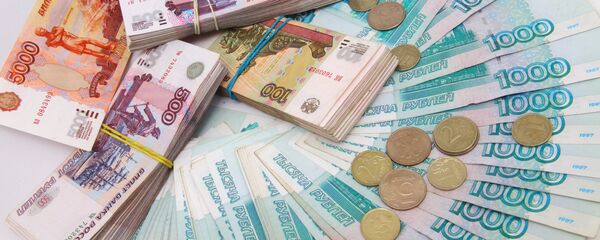US stocks moved flat in the short Christmas Eve trading session, retreating just before the close thus ending a five-day streak of gains. Investors have been aware of the market overvaluation as stocks advanced for several days while American consumers failed to provide enough sustainable spending in stores. Simultaneously, energy stocks are under pressure as an oversupply of oil in the US has rendered the price of crude to somewhat stabilized at about $60/bbl.
Both the S&P500 and Dow Jones hit record highs during trading on December 24; however, by the end of the day these results were erased in a sell-off. The former slid roughly 1%, while the latter gained 0.1% at the close. Trading volumes were thin as only 2.5 bln shares exchanged hands during the day, while the daily average during the month has been some 7.66 bln. US markets will reopen Friday.
The US National Retail Federation (NRF) previously forecast a 4.1% increase in Christmas season sales this year, according to a Reuters report. However, this past Saturday showed a sluggish 0.5% rise in retail sales from $9.1 bln last year. RetailNext analysts say sales in general stores actually dropped 8.9% as compared to year ago as consumers increasingly favor online shopping.
"The majority of retailers will be flat to negative in their bricks and mortar business but their online sales will show significant double-digit increases. This should boost the overall sales number," Keith Jelinek of FTI Consulting told Reuters.
Nevertheless, the uncertainty in consumer sentiment is worrisome for the stock markets. Another factor is the continued oil slide. WTI fell 2.2% to $55.84/bbl on December 24, while Brent slid 2.4% to $60.24/bbl. Crude stockpiles in the US have increased by 7.27 mln bbl during the week ending December 19, beating an initially forecasted decline of 2.5 mln bbl.
The Shanghai Composites advanced 2.4% and the CSI 300 rose 2.6%, driven by the stocks of mechanical engineering enterprises as Beijing promises financial support to Chinese companies, ready to offshore their production to other countries.
Markets in Hong Kong are closed December 25-26 due to the Christmas holidays. In Japan, the Nikkei Index slid 0.3, dragged down by the 4% decline in Japan Airlines stock. Investors were spooked by media speculation that claimed the Abe government might end the tax break it has provided to struggling companies.
Meanwhile, Russia has become a point of attraction for speculative capital in exchange-traded assets. The government’s recent measures to halt the ruble’s plunge have prompted the national currency’s appreciation of 22%, triggering an inflow of investment. Investors rushed to buy the previously depreciated Russian assets.
“People piling into the Market Vectors Russia ETF might be speculators who are fishing for short-term gains,” Sergei Pigarev of Moscow-based Rye, Man & Gor Securities told Bloomberg.
As Russia’s GDP is set to shrink by 4.7% next year, and the international sanctions plague any commercial perspective, there is not much opportunity for long-term investors. This means a temporary stabilization in the nation’s economy might prompt a short-term resurgence in equities with a rapid sell-off possible early next year. There is still more concern than optimism in the market.






